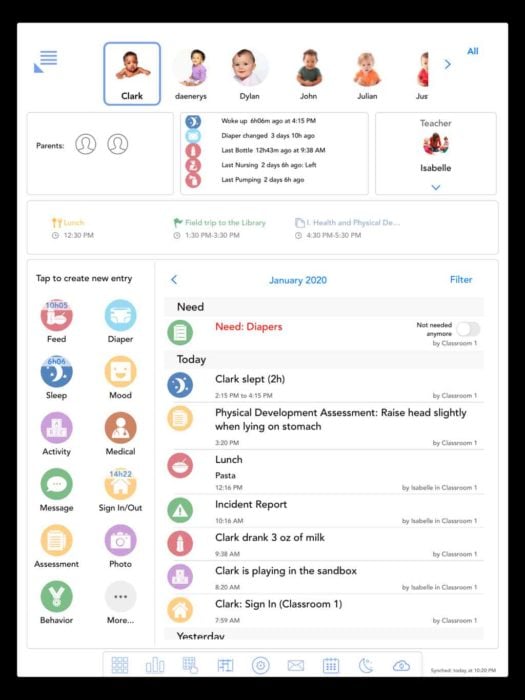Finding childcare is just plain hard.
There’s so much to consider: What type of childcare setting do you want — a daycare center, a nanny or in-home childcare provider? Then there’s how much you can spend, the location, the caregiver-to-kid ratio, the ages of the kids, how well your child will fit in to the mix and the style of caregiving (discipline, free play, structured and routine, academic).
Seriously, the list is endless!
Then there’s your gut feeling, perhaps the most important factor of all.
After you find a place that has an opening, that will work for your schedule and that fits your budget, you still have work to do: You need to be sure the setting will be a good fit for your child.
This is usually accomplished by visiting the center and interviewing the provider.
So you arrive during naptime or after business hours with your prepared list of questions, tour the facility and sign the paperwork.
It all looks good. Right?
But there is so much more to choosing a childcare provider than just finding the right type of daycare and asking the right kinds of questions.
Sarah Kollin, a case manager responsible for daycare licensure at Red Lake County Social Services in Red Lake Falls, Minn., suggests parents look for provider engagement with the children as well.
How does your potential childcare provider interact with the children?
Do the staff appear to truly enjoy spending time with children or do you get the feeling that the kids are merely tolerated or managed? And how do you tell the difference?
Tour at the right time
Parents can learn a lot about a potential childcare provider by simply watching how staff interact with both the children and other parents.
But it’s important to observe providers when it’s most beneficial to you, though not necessarily the provider.
Indeed, a provider’s first instinct is to offer an interview at a time that’s most convenient for her or the center, and understandably so.
However, for a more realistic look at a provider, the best time for a parent to stop by is during a busy and/or stressful time.
If you can, try to schedule your visit either right after drop off or right before pick up. Be honest and up front with the childcare provider: She’ll wonder why you want the interview at such an inopportune time.
Let her know you want to see what the end of the day looks like or how the day starts out. These will be the times you’ll be there anyhow; it’s nice to see what you’ll be stepping into every day. You can spend the drop off/pick up time simply observing and keep your list of questions for when things quiet down for the provider.
If that just won’t fly, then schedule the meeting while the kids have free play or while they’re being led in a structured activity with another provider.
Be wary of the provider who will let you interview only during quiet, kid-free moments.
Childcare is the product, after all. You should be able to see a demo before you buy (and you know it won’t come cheap).
At the very least, ask to bring your child back for a “test run.”
Make observations
When you finally do visit, here’s what to consider:
- Are you greeted at the door? And more important, is your child greeted with enthusiasm? And is the same true for all the families?
- Do staff get down to a child’s eye-to-eye level? A provider with good skills knows how to grab a child’s attention. Most children respond better if they feel they’re heard. The best way for a provider to show your child she’s listening is to make eye contact. And this needs to be done at the child’s height.
- Do providers seem engaged? Are they affectionate and compassionate? Do the providers, laugh and smile and/or pause to hear what children have to say? Do the kids run to staff with enthusiasm to show them things? Do they share their stories and say: “Watch this!”
- What happens with “bad” behavior? When a child misbehaves, does the provider approach the child calmly and quietly to redirect the behavior? A good provider will get down to the child’s level to offer gentle guidance, distraction or alternative choices.
- Kids are going to act out — and at the most inopportune times. How does the daycare handle this, particularly in the middle of an interview?
Almost anyone can care for a child’s basic necessities and keep them alive until you return.
To find good, quality childcare you need to find a place that truly cares for your child — for all children — and knows how to show it.
Shannon Lambert is a social worker and a freelance writer living in Northern Minnesota. She blogs about parenting and self-help for moms at makingmommas.com. She’s former childcare provider and a mother to six boys, who have all spent time in daycare.





















